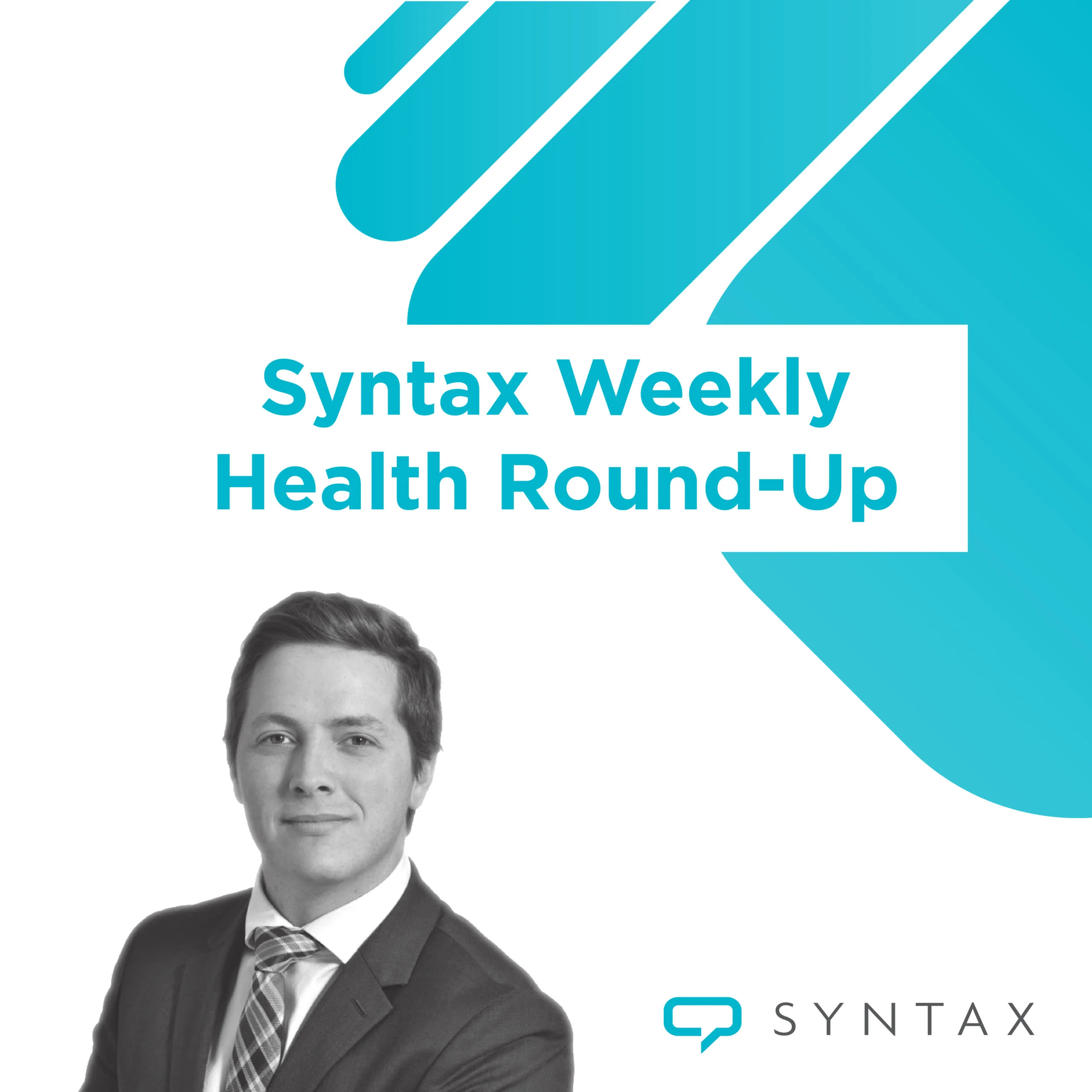Insights | Blog
Feds help Yukon integrate health professionals with foreign credentials
Yukon received funding to create a licensure regulatory process and integrate internationally trained health workers into the territory. On that, and more, here is your Syntax Weekly Health Round-Up.
On the Hill
- The House of Commons was on its February break week. It is scheduled to return on Monday, February 26.
- When the Standing Committee on Health returns next week, members will focus once again on their study of the opioid epidemic and toxic drug crisis in Canada. This spring, the committee will host hearings across Canada on this study. They will also travel to Iceland, Portugal, and Germany for meetings as part of the study.
Around Government
- Health Minister Mark Holland tabled in the House of Commons and the Senate the 2022 Annual Report of the Patented Medicine Prices Review Board (PMPRB). The report outlined that the patented medicine sales reached $18.4 billion in 2022 and accounted for approximately 49 per cent of the sales of all medicines in Canada. It also stated that Canadian list prices for patented medicines were the second-highest of all OECD countries in 2022 (up from the third-highest in 2021).
- The federal government announced funding of up to $3.65 million to the Government of Yukon through the Foreign Credential Recognition Program to improve the integration of internationally educated health professionals into the Yukon labour market. The funding will support the creation of a Yukon territorial licensure regulatory process, which currently does not exist. It will also create a Yukon Foreign Credential Recognition Centre to support the integration of up to 150 internationally trained health workers into the territory.
Around the Dominion
- Health PEI welcomed a new CEO, Melanie Fraser, an accomplished senior public sector executive with 20+ years of experience building, leading, and enhancing organizations and systems. Fraser was previously an Assistant Deputy Minister for Health in Ontario, where she led many activities in areas including mental health and addictions, data and digital transformation, and health human resources. The provincial government also announced that the new mental health and addictions emergency department was ready to open, providing emergency support to Islanders in need of urgent mental health, addiction, and substance use care and clinical support in times of crisis.
- In Ontario, the government announced its support for the planning, design, and implementation of their relocated neonatal intensive care unit (NICU) at St. Michael’s Hospital. The upgrades will enhance infection prevention and control measures to ensure the health and safety of critically ill newborns, add private rooms, and expand the NICU to accommodate state-of-the-art design standards and provide more space for specialized care.


